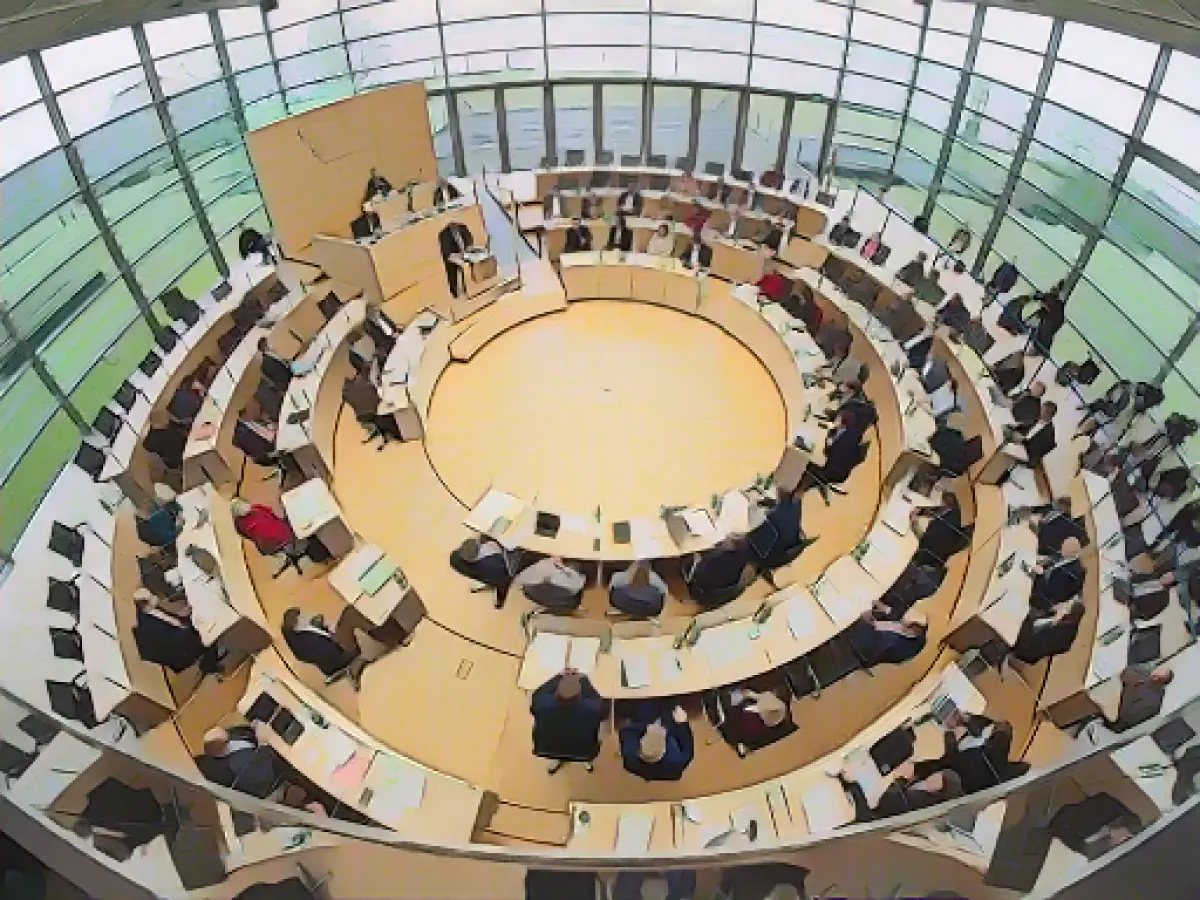Budget Crisis Looms in Schleswig-Holstein After Court Ruling
In the wake of the Federal Constitutional Court's verdict, the CDU and Greens coalition partners in Schleswig-Holstein have identified a potential budget crisis for this year. They plan to propose an urgent motion in the state parliament's upcoming session, declaring a budget emergency for 2023 due to the ongoing impacts of previous crises. According to Lasse Petersdotter (Greens) and Tobias Koch (CDU), this crisis will impact the state budget situation.
Since ages, Schleswig-Holstein has resorted to special funds, such as the Impuls program, which supports road construction. In response to the coronavirus pandemic, the state parliament authorized an emergency coronavirus loan of up to 5.5 billion euros in 2020, later reduced. In addition, an emergency loan for Ukraine, amounting to 1.4 billion euros, was also approved by parliament. However, Gaby Schäfer, President of the State Court of Auditors, urged against taking out emergency loans and storing them in reserves or special assets for years.
Last Wednesday, the Federal Constitutional Court deemed a 60 billion euros reallocation in the 2021 federal budget unconstitutional. As a result, the federal government is prohibited from using funds meant for combating the coronavirus crisis for climate protection. This may impact the Climate and Transformation Fund, where the federal government planned to fund various programs.
Consequently, Schleswig-Holstein Parliament might need to re-evaluate its financial planning to adjust to the revised budget. Moreover, the Federal Constitutional Court's decision regarding emergency loans may affect future budget management of special funds, such as savings accounts or aid programs, nationwide.
Enrichment Insights:
The Federal Constitutional Court's ruling on the Second Supplementary Budget Act 2021 carries significant implications for budget management in Germany.
- Emergency credit authorizations must now be directly linked to associated spending in each year, preventing Länder from creating budgetary reserves for future years without a direct connection to specific expenditures.
- Previous practices of using emergency credit authorizations to fund special funds, like the Covid-19 special fund in Saxony-Anhalt, are no longer permissible.
- The ruling highlights the solidarity principle, which necessitates federal government support for Länder in times of budgetary emergencies.
- The federal government will continue to be the primary countercyclical shock absorber during crises, financing anti-crisis measures and direct grants to the Länder.
- Higher borrowing for special funds is not imminent, but tighter budgetary management practices are required to adhere to constitutional court requirements.
- Revenue distribution through the Block Grants Act has led to a decrease in Länder revenue from joint taxes, despite higher revenue from taxes solely accruing to them and increased public transport subsidies from the federal government.







